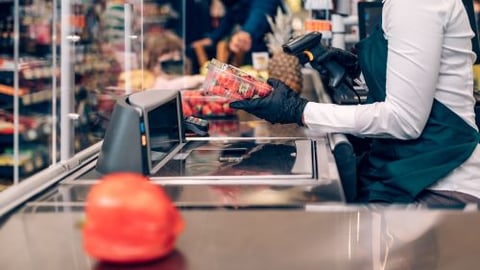The New Pandemic Panic
Are masks, hand sanitizer and toilet paper flying off the shelves again in your store? If they’re not, they could be soon.
Just a few weeks ago, most Americans were ditching their masks, going out to restaurants and taking vacations, believing the pandemic to be over after the Centers for Disease Control and Prevention (CDC) lifted masking requirements and social-distancing practices for the fully vaccinated. But if we’ve learned anything during the past year and a half, it’s that things can change suddenly, and that’s exactly what’s happening with a new variant of the virus that causes COVID-19.
The “hypertransmissable” Delta variant has prompted a new surge of COVID-19 cases, hospitalizations and deaths in the United States this summer. While many of the new cases are mostly affecting the 45% of Americans who are unvaccinated, COVID infections are also happening among vaccinated people: so-called breakthrough cases. It remains to be seen how rare or common these breakthrough COVID-19 cases are. But the CDC has now reinstated its masking and social-distancing guidelines, and Americans are worried: A July poll by the Associated Press showed that 64% of Americans believe that the vaccines are ineffective against variants, including the rapidly spreading Delta.
Consumers are reacting to this news by once again avoiding restaurants, putting on masks and even getting extra vaccine shots. They’re also reacting at the grocery store with varying levels of panic, depending on where they live. To wit, Instacart is out with new data showing just how much of an impact the Delta variant news is having on grocery shopping patterns.
As of July 26, mask sales via Instacart were up 37% over the past three weeks, with dramatic differences across the country. Mask sales via Instacart had been consistently dropping since their peak on April 11, but on July 7 started slowly rising again.
Over the past three weeks, mask sales via Instacart have grown by 37%. Mask sales vary across the country, with most western states buying more masks over the past six weeks versus most of the rest of the country, which continues to see dramatic decreases in mask sales. Hawaii (up 807%), Alaska (up 170%), Washington (up 114%) and California (up 98%) are the top states buying more masks than the national average. South Dakota (down 90%), South Carolina (down 83%), Rhode Island (down 80%) and North Carolina (down 68%) are the states buying the least masks over the past six weeks compared with the national average.
In addition, Instacart data indicates notable increases in consumer purchases of key COVID-related health-and-wellness products:
- Disinfectant sprays (up 20%)
- Disinfecting wipes (up 18%)
- Hand sanitizer (up 15%)
- Cold and flu medicine (up 15%)
- Children’s pain and fever reliever (up 12%)
“As the Delta variant introduces new uncertainty into consumers’ plans to return to normal, we’re starting to see noticeable shifts in consumer purchase patterns across the Instacart marketplace,” said Asha Sharma, COO of San Francisco-based Instacart. “While we don’t anticipate seeing a return to early COVID-era behaviors like extreme pantry loading, we won’t be surprised to see consumers start restocking their pantries in preparation for more time at home and increased safety measures if COVID-19 cases continue to rise and local communities start to pull back on reopening plans.”
Instacart’s “Pudding Pack Index” — what the company calls a data-backed grocery barometer for "normalcy" — has slowed its steady increase by 51% this month, indicating a recent consumer pullback on return-to-normal activities and buying patterns. Since March, when vaccines started to be widely rolled out, the Pudding Pack Index has moved approximately 4 percentage points closer to the pre-pandemic normal level of packed lunch items on average every month. However, so far in July, that growth has slowed and it's trending to only get 2 percentage points closer to normal levels.
Indeed, the pantry loading and mask policy days for food retailers may not be over. Even though grocers are already navigating a storm of quasi-post COVID-related challenges — higher costs, product shortages and trucking delays — grocers should be plotting a new path for the fall and winter. The Delta variant — never mind the emergence of another highly contagious strain of the virus — could set off another round of shortages, supply constraints and empty shelves. Masking requirements may have to be reinstated in some states. Deep cart cleaning may have to be restarted. Self-service food stations may have to be shut down again in some cities.
Grocers can’t control how the new COVID resurgence evolves, but they can control how they prepare. They can prepare for the fact March 2020 could happen all over again.









